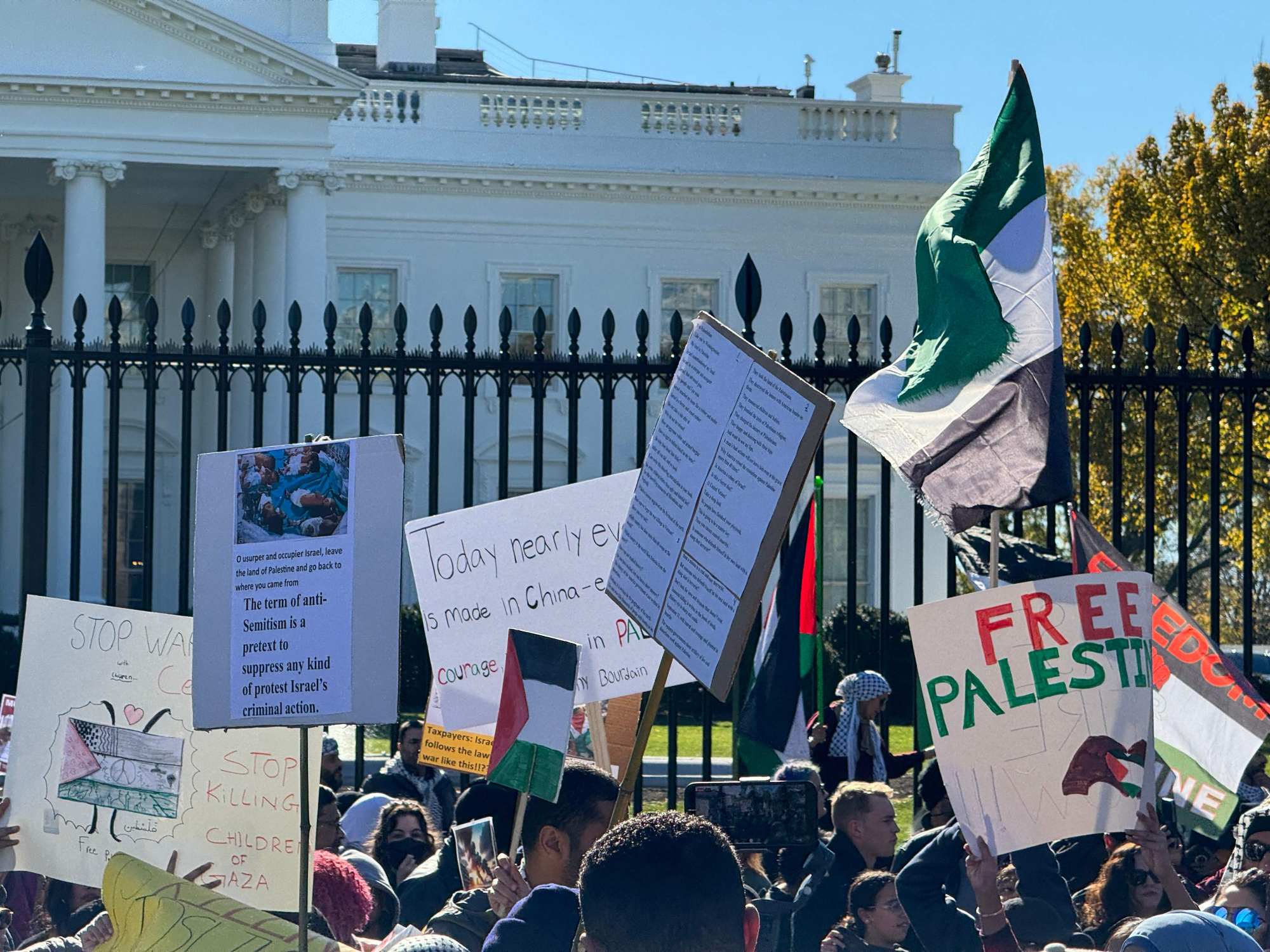“Most of our bosses on Capitol Hill are not listening to the people they represent,” one of the congressional staff members told the crowd at a protest this month. Wearing medical masks that obscured their faces, the roughly 100 congressional aides heaped flowers in front of Congress to honour the civilians killed in the conflict.
After weeks of seeing images of bloodied children and fleeing families in Gaza, a significant number of Americans, including from Biden’s Democratic Party, disagree with his support of Israel’s military campaign. A poll by Associated Press and NORC Centre for Public Affairs Research in early November found 40 per cent of the US public believed Israel’s response in Gaza had gone too far. The war has roiled universities and set off nationwide protests.
As of late this past week, one open letter had been endorsed by 650 staff members of diverse religious backgrounds from more than 30 federal agencies, organisers said. The agencies range from the Executive Office of the President to the Census Bureau and include the State Department, US Agency for International Development and the Department of Defence.
A Biden political appointee who helped organise the multi-agency open letter said the president’s rejection of appeals to push Netanyahu for a long-term ceasefire had left some federal staff feeling “dismissed, in a way.”
“That’s why people are using all sorts of dissent cables and open letters. Because we’ve already gone through the channels of trying to do it internally,” this person said.
China to host talks with foreign ministers from Arab and Islamic countries
China to host talks with foreign ministers from Arab and Islamic countries
The letter condemns both the Hamas killings of about 1,200 people in Israel in the militants’ October 7 incursion and the Israeli military campaign, which has killed more than 11,500 Palestinians in Gaza, according to the Palestinian Health Ministry.
The letter calls for the US to push for a ceasefire and a release of hostages held by Hamas and of Palestinians that the signers say are unjustly detained by Israel, as well as greater action overall on behalf of Gaza’s civilians.
The organisers of the executive branch and congressional protests all spoke to Associated Press on condition of anonymity, citing fear of professional and other repercussions. The federal employees speaking up in opposition to the US policy appear to be seeking a balance, raising their objections in a way that does not deprive them of a seat at the table and risk their careers.
Some current and former officials and staff said it’s the public nature of some of the challenges from federal employees that is unusual. It worries some, as a potential threat to government function and to cohesion within agencies.

But dissent cables, which are signed, are classified and not for public release.
In State Department tradition, at least, if “for whatever reason a criticism or complaint were not taken into account or were not believed to be sufficient to change policy, well, then, it was time to move on. It was done,’’ said Thomas Shannon, a retired career foreign service officer who served in senior positions at the State Department. “It was time to salute, and execute.”
Thousands of Pakistan religious party supporters rally against Gaza bombing
Thousands of Pakistan religious party supporters rally against Gaza bombing
Growing diversity of the State Department’s workforce is a positive, Shannon said. But “in the foreign service as in military service, discipline is real and it’s important,” he said, citing the need for consistent, cohesive foreign policy.
State Department officials say several expressions of dissent have made their way through the formal channels to Secretary of State Antony Blinken.
State Department spokesman Matthew Miller said the dissent was welcome. “One of the strengths of this department is that we do have people with different opinions,” he said.
The USAID letter with 1,000 staff members backing it, which was given to The Washington Post, Foreign Policy and others, calls for an immediate ceasefire. But one long-time USAID staff member said it distressed some of the agency’s staff, including some who are Jewish, by not addressing the Hamas killings of civilians in Israel.


